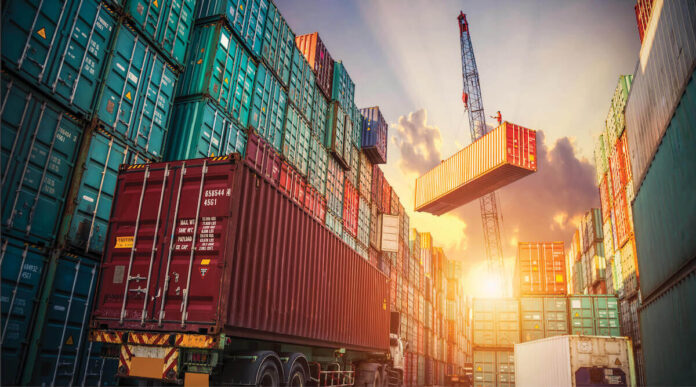To understand the dynamics of any marketplace, the first thing to identify is the stakeholders involved. In the logistics marketplace, we can see that there are shippers, transporters, brokers, and drivers. Brokers exist as the ‘middle man’; they connect transporters to shippers, and it’s this connection that we’ll be focusing on in this segment.
In Pakistan, brokers tend to take the shape of ‘addas’; central locations where smaller-sized transporters gather. These are necessary because there is no other way, beyond referrals, for these transporters to connect with customers. Understandably, these transporters will only be able to connect to smaller-scale customers; those with smaller orders, and unlikely to be long-term or repeat customers. The other option is to associate with larger transporters; in other words, they act as additional vehicles for their fleet. This obviously means that not only do they have lower profits, but they also have less agency over the orders they can take.
For these transporters, the return trip is as important as the order they take up in the first place. The prospect of taking on another order when coming back is vital, as obviously, the return trip is an expenditure of fuel and time. With the adda system, however, it is more likely than not those transporters will receive one-way orders, and be forced to return empty-handed.
We can see that while the adda acts as a marketplace for transporters, it is more like something transporters are forced to participate in to stand any chance of obtaining any orders. Considering today’s state of technology, however, such huge gaps in communication should be unacceptable. There are many ways technology can be used to completely transform the market, but we’ll go through some of the more obvious ways small-to-medium sized transporters can find empowerment to hold their own in the market.
The Marketplace
One of the biggest factors for smaller transporters having to settle for relying on addas, or allowing themselves to be incorporated into the fleets of larger transporters, is their inability to connect, or allow themselves to be connected, to customers. This is, however, the very first thing that is solved by a digital environment. Instant connectivity, from anywhere at any time, is a digital market’s strongest point, and this is every bit the case with logistics.
A system can be devised where customers simply login to an app on their phone or through a web interface, and can place orders from there. These orders can be made visible to transporters who are also participants in the system. From within the system itself, the transporters are able to place bids on orders of their choosing. The customers can come to an agreement quickly and easily with any transporter that they feel placed the best bid, and without further delay, the order can be considered accepted and can proceed.
Such a solution would enable transporters to manage their workload based on their own interests and convenience rather than making do with anything they can get. Transporters would also no longer be obliged to wait around at addas or be assimilated into larger fleets in order to gain access to customers. Online review systems and there being a single ‘point of contact’ for all customers and transporters also mean that there is a higher level of trust; the bad apples, if any manage to make their way into the system, are identified, flagged, and potentially rooted out fairly quickly, and cannot survive long in an environment where communication is instant and widespread.
These are just the more direct ways transporters can be empowered. More under-the-hood benefits, such as built-in real-time tracking, paperless transactions and record keeping, vehicle & driver management, and more, further strengthen growing transporters by handling otherwise costly processes and procedures and significantly cutting overhead expenditures significantly.
Fortunately, such industry-defining solutions are already a ground reality. Wahyd Logistics is a company that has been an emerging player in the transportation industry. Having garnered significant experience in the industry, it realized that a technology-based solution was the only feasible way forward for logistics as a whole. Leveraging its experience, industry connections, and a team well-equipped to tackle issues both technical and non-technical, Wahyd R&D developed its purely digital, always-online solution: Wahyd Logistics.
Wahyd Logistics is the perfect showcase of how digital is the only way forward for all of the stakeholders we mentioned at the start; each has their quality of business distinctly improved, but perhaps the healthiest upgrade for the industry as a whole is for the smaller and growing transporters, who will grow to either be the future of the market, or remain to fulfill niches that would otherwise be too difficult to establish and maintain and which larger companies may overlook.
The future of the economy, in general, is one deeply intertwined with technology. Logistics, though a very physical industry, is no different. With forward-thinking players like Wahyd at the forefront, logistics stands to gain much, and should be able to reap the benefits.


